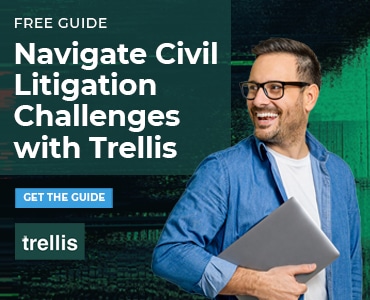When I think about the changes to social media and social networking in the past year, a variety of changes come to mind. And, sure, we could talk about how each of these changes might impact how you market your law practice. But in contemplating some of the “stuff you must know,” it seems to me the most important thing is still one of the most overlooked: Being authentic.
Yeah, I know it’s not glamorous. It’s not the insider tip, trick or technical hack that you might have been hoping for. It’s not “How to Make It Rain with Social Media: The Complete Guide.” But if you’re a lawyer contemplating your marketing plan for the year ahead, it should permeate everything that you’re considering to market your practice.
The Beginning of a Shift
You see, from my vantage point, 2013 marks the beginning of a shift online:
- A shift away from artificial online self-promotional marketing games toward authentic knowledge sharing, discussion and socializing.
- A shift toward earning credibility, authority and recognition.
- A shift toward recognizing that social media and online networking are not magic bullets for practice growth but are, instead, effective tools for communicating with other people, both locally and globally.
- I believe this shift is partly due to the significant updates made by Google’s search-quality team, and partly due to users beginning to understand how to filter noise from their networks.
Whatever the root cause, the result will be that those who develop an authentic online presence will create, nurture and solidify professional relationships that will lead to more business. Conversely, those who resist the shift to authenticity will find themselves wondering why the Internet “just doesn’t seem to work for business development.” Here are a few things that will help make your online activities more authentic.
Authentic Blogging
Whether you’re thinking about entering the blogosphere for the first time or revising your approach to blogging in 2013, you should look at the authenticity of your blogging with a critical eye. Do you:
- Write your own posts?
- Include author information (name, picture, contact info)?
- Link your Google+ profile to the content you create?
- Include a link to your profile or bio?
- Quote, cite and link to other blogs and bloggers?
- Allow for comments?
- Encourage comments?
- Respond to comments?
- Answer real questions in your posts?
- Cover subject matter about which you know a lot?
Lawyers have been told that blogging is a good way to attract new business. And it certainly can be. But not all blogging is equal. Posts that are published for the sake of targeting keywords, that are self-promotional, that regurgitate news stories and that don’t motivate readers to subscribe, share and cite won’t be effective for attracting new business. Instead, they are likely to be a waste of time and money, harmful to your professional reputation—and potentially unethical.
Authentic Social Networking
Lawyers have been told that they need to be on Facebook, Twitter and LinkedIn. So, many lawyers have flocked there—or paid someone to “set them up” there. But having social profiles and auto-distributing your blog posts there isn’t social networking.
People aren’t on these platforms to read your thin self-promotional updates. On the other hand, these online networks might be a good way for you to keep in touch with people in your professional network. They might also be a good way to meet someone new or access someone you might not otherwise be able to connect with. Do you:
- Use your real name in your social media handles?
- Use a real photograph of yourself in your profiles?
- Follow people you already know in real life?
- Meet people in real life that you follow online?
- Give attribution to other authors when sharing posts or articles?
- Organize your contacts into groups and lists?
- Respond to messages and replies?
- Do more responding than broadcasting?
- Post updates that real people care about?
How Much Time? A Checklist for Prioritizing Activities
Lawyers are a busy bunch. They deal in experience and skill, which has traditionally been measured in time. I’m often asked how much time a lawyer should spend online. And, of course, there are no hard-and-fast rules. Having a plan, however, and developing regular habits, will make online participation less of a chore.
Instead of trying to advise you on how much time you should spend with online social media and networking, I suggest you use the checklist below as a guideline to help prioritize your online activities:
DAILY:
- Review Google Alerts for your name, firm name and topics relevant to your practice.
- Use a feed reader to skim your favorite blogs, news and industry sites.
- Write one thoughtful comment on an article or post, in an area where you can offer intelligent insight.
- Share an interesting post or article with someone in your online social networks.
WEEKLY:
- Write one well-researched blog post or article.
- Have a conversation on Twitter, Facebook or LinkedIn with someone you know in the real world.
- Find one new author or blog to add to your feed reader.
MONTHLY:
- Send out an email newsletter.
- Meet one person that you’ve connected with online in real life.
- Create and share one new piece of non-text content (i.e., an e-book, SlideShare deck, video, webinar or white paper).
YEARLY:
- Speak to an audience on a topic you’re an expert in. Publish the slides or video recording online.
- Host a local community event.
- Take inventory of your year’s online activities.
Feedback
Second only to questions about how much time to spend are those about how to measure social networking activities. While measuring social networking effectiveness is akin to measuring one’s sociability at a cocktail party, if you want to see if what you’re doing online is resonating, here are some things to measure:
- Are people subscribing to your blog?
- Are people re-sharing your articles, tweets and updates?
- Are people writing about you?
- Are people contacting you after reading something you published?
If you’re not getting this type of feedback, change course. Maybe it means you publish less, but more thoughtfully. Maybe it means reaching fewer people, but reaching people who are truly interested in you.
My Crystal Ball
Okay, you get the point. Now for some lawyer marketing predictions:
- Word-of-mouth referrals will continue to be the best source of new business and the Internet will play an increasing role in who gets referred and who gets hired from those referrals.
- Legal services consumers will expect to be able to find information about their prospective lawyers on the Internet.
- More legal services consumers will rate and review their lawyers online.
- More consumers will seek out information and answers related to legal issues online.
- Lawyers who stop shouting about how great they are and start answering questions, sharing knowledge and experience, and who simply socialize online, will develop more professional relationships that lead to new business than those who continue to either spam or ignore the web.
- Law firm websites designed to market a firm will be of less importance than a firm’s lawyers’ presence in various online social channels.
- Google will continue to be the top way that your prospective clients will look for you online.
- The online legal landscape will become increasingly competitive as more lawyers learn the right way to build a web presence.
Nothing really earth-shattering here, I know. It is clear, though, that the Internet generally, and social media and networking more specifically, can be powerful tools for lawyers to create, nurture and solidify professional relationships that lead to more clients. But …
- You have to be patient. Earning recognition doesn’t happen overnight.
- You have to be good. What you publish matters, and writing is a skill that takes practice and talent.
- You have to be authentic. People are interested in people, not avatars, bots and proxies.
Make this the year that you make your social marketing and networking authentic.
Gyi Tsakalakis helps lawyers put their best foot forward online because clients are looking for them there. He is a co-founder of AttorneySync, a digital marketing agency for law firms. You can find more of Gyi’s writing in his “Optimize” column on Attorney at Work, on Lawyerist and Avvo’s Lawyernomics blog. You can ask him a question (or just say hi) on LinkedIn, Twitter, Google+ and Facebook.























